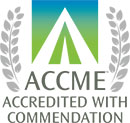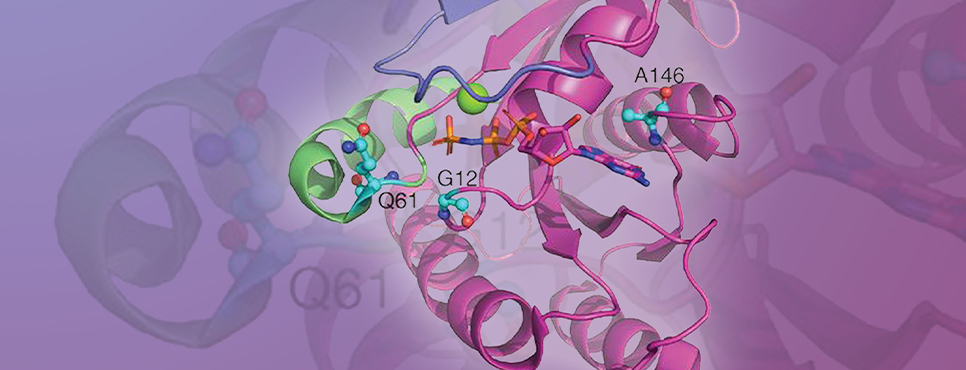Continuing Medical Education

Accreditation Statement
The American Association for Cancer Research (AACR) is accredited by the Accreditation Council for Continuing Medical Education (ACCME) to provide continuing medical education activities for physicians.
Credit Designation Statement
AACR has designated this live activity for a maximum of 19.0 AMA PRA Category 1 Credit(s)™. Physicians should only claim credit commensurate with the extent of their participation in the activity.
Credit certification for individual sessions may vary, dependent upon compliance with the ACCME Accreditation Criteria. The final number of credits may vary from the maximum number indicated above.
Claiming CME Credit
Physicians and other health care professionals seeking AMA PRA Category 1 Credit(s)TM for this live continuing medical education activity must complete the online CME Request for Credit Survey by Thursday, April 20, 2023 . Certificates will only be issued to those who complete the survey. The Request for Credit Survey will be available via a link on the AACR website and via email. Your CME certificate will be sent to you via email after the completion of the activity.

Successful completion of this CME activity, which includes participation in the evaluation component, enables the participant to earn up to 19.0 Medical Knowledge MOC points in the American Board of Internal Medicine’s (ABIM) Maintenance of Certification (MOC) program. Participants will earn MOC points equivalent to the amount of CME credits claimed for the activity. It is the CME activity provider’s responsibility to submit participant completion information to ACCME for the purpose of granting ABIM MOC credit.
To receive ABIM MOC, participants must request MOC in the CME Request for Credit Survey and complete all questions. Once these steps are completed, AACR will submit your completion information via the ACCME’s Program and Activity Reporting System for the purpose of granting MOC points.
Statement of Educational Need, Target Audience, and Learning Objectives
Despite 40+ years of research on RAS genes – which drive growth in about one-third of all cancers – the cancer and biomedical research field is just starting to peel away the label of RAS as an “undruggable target.” The prognosis for many patients with RAS mutations (KRAS, NRAS, HRAS) continues to be poor, but incremental recent progress shows some promise in decreasing the clinical burden across several disease sites.
Signaling pathways that regulate cellular proliferation are commonly mutated in cancer cells, leading to unrestrained cellular division and tumor growth. Therefore, insight into the regulation of these signaling pathways is critical to the development of novel therapeutics.
Given the prominent role of RAS in so many human cancers, a comprehensive and in-depth forum for all constituents interested in RAS research is necessary to expand our knowledge of both the basic research pushing the field forward and the exciting potential for clinical application that translational science is advancing.
This activity will be of interest to physician-scientists, physicians, and health care workers who work with patients who have one of the many cancers that are or have a high probability of being driven by a RAS gene mutation. RAS mutations are known to drivers in more than 30% of all human cancers – including pancreas, colorectal, lung, melanoma, acute myeloid leukemia, and bladder cancers. Researchers, clinicians, and translational investigators will be educated in the latest advances in the RAS field. Despite continued challenges, the field has progressed rapidly since the last Special Conference on this topic in 2018 and this program will provide an opportunity to build upon that progress by gathering thought leaders from the lab to the clinic. Attendees will leave this conference with additional education across basic, translational, and clinical areas that should lead to opportunities to improve patient care.
After participating in this CME activity, physicians should be able to:
- Articulate the functions of the RAS Superfamily members and their importance in cancer research.
- Assess the potential to apply advances made from research in one disease-site to other diseases sites.
- Explain the importance of metabolism in RAS-driven cancers and current efforts to develop novel therapeutics.
- Identify common syndromes and disorders classified as RASopathies and their potential impact on cancer research.
- Provide examples of signaling pathways and their impact on the actions of RAS.
Disclosure Statement
It is the policy of the AACR that the information presented at AACR CME activities will be unbiased and based on scientific evidence. To help participants make judgments about the presence of bias, AACR will provide information that Scientific Program Committee members and speakers have disclosed all financial relationships they have with ineligible companies whose primary business is producing , marketing, selling, re-selling, or distributing healthcare products or services used by or on patients. All of the relevant financial relationships for these individuals have been mitigated.
Acknowledgment of Financial or Other Support
This activity is supported by Professional Educational Grants which will be disclosed at the activity.
Questions about CME?
Please read our frequently asked questions. If you still have questions, please contact the Office of CME at (215) 440-9300 or cme@aacr.org.
